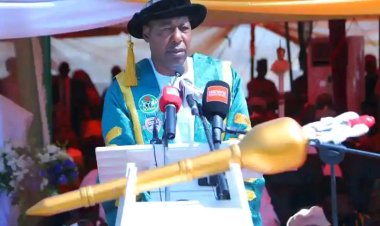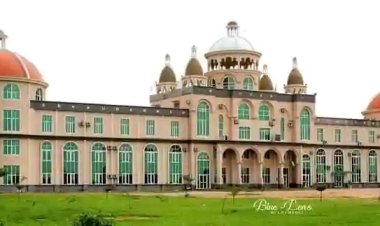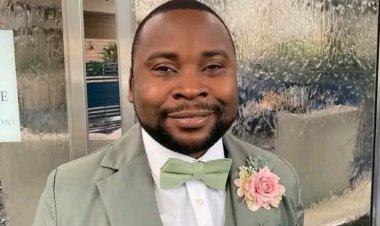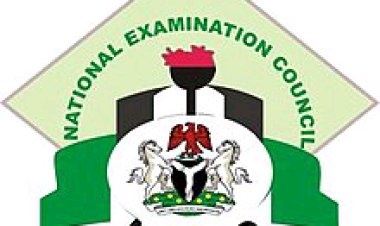UNILAG Don Urges Academia to Spearhead National Transformation, Embrace Reforms
Professor Adele Jinadu, a renowned Political Science scholar, emphasized the crucial role of academia in driving positive change and sustaining democracy in Nigeria during his keynote address at the UNILAG School of Postgraduate Studies Masters of Diplomacy and Strategic Studies Annual Lectures Series.
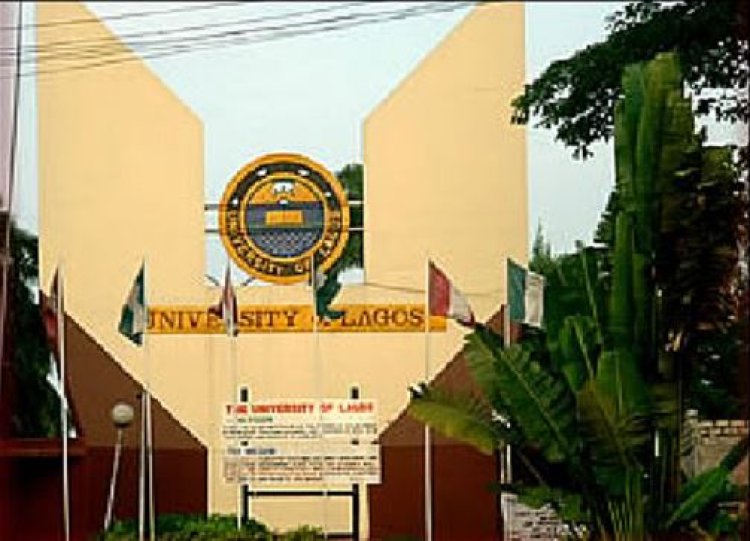
Professor Adele Jinadu, a distinguished figure in Political Science and former Secretary-General of the African Association of Political Science, delivered a compelling call to action for academia to lead the charge in fostering democratic sustainability and catalyzing positive change in Nigeria. Jinadu's remarks came during his keynote address at the University of Lagos (UNILAG) School of Postgraduate Studies Masters of Diplomacy and Strategic Studies Annual Lectures Series, themed "Setting Foreign Policy Content of the Renewed Hope Agenda."
RECOMMENDED: UNILAG I2M Project Opens Job Opportunities in Innovation and Technology Sector
The event, held at UNILAG's Akoka campus in Lagos, saw Jinadu emphasizing the pivotal role of universities in effecting meaningful societal transformation. He stressed the importance of intellectuals critically examining government policies and urged for a departure from the tendency to politicize academic institutions.
"The university is a hub for cultivating diverse ideas and should serve as a bastion of democratic ideals. It must play a proactive role in steering national change," remarked Jinadu.
Addressing the issue of youth involvement in governance, Jinadu highlighted the need for a shift in mindset, noting concerns about materialism among the younger generation. He urged universities to reorient their educational approaches to produce public-spirited individuals equipped to address contemporary challenges.
In a broader analysis of Nigeria's political landscape, Jinadu lamented a perceived decline in domestic politics and expressed concerns about a "recolonization" of the country. He attributed this to ethnic sentiments, mismanagement of resources, and a failure of federalism.
SEE MORE: UNILAG and ICCON Forge Research Partnership to Enhance Chemical Practices
Echoing Jinadu's sentiments, Professor Yomi Akinteye, an international relations expert and military strategist, called for a reassessment of Nigeria's foreign policy. He advocated for a shift away from an exclusively Afrocentric approach, emphasizing the need for mutually beneficial partnerships and increased commercial activities.
On the practical aspects of foreign policy, Akinteye highlighted the importance of fostering industrialization through international collaboration and urged for improved relationships with Francophone countries.
Adding to the discourse, Professor Muyiwa Falaiye, Director of the Institute of Diaspora and African Studies at UNILAG, emphasized the interconnectedness of foreign and domestic policies. He underscored the necessity of a robust economy and a strong military to support an effective foreign policy agenda.
Ambassador Chandramouli Kumar Kern, Consul-General of India in Lagos, reaffirmed India's commitment to partnering with Nigeria in economic development and technology initiatives, signaling opportunities for bilateral cooperation.
READ ALSO: UNILAG Aims to Become Africa’s Most Subscribed University
The discussions underscored the imperative for a holistic approach to national development, combining domestic reforms with strategic foreign engagements to drive sustainable progress.

 Chris Oyeoku Okafor
Chris Oyeoku Okafor 
